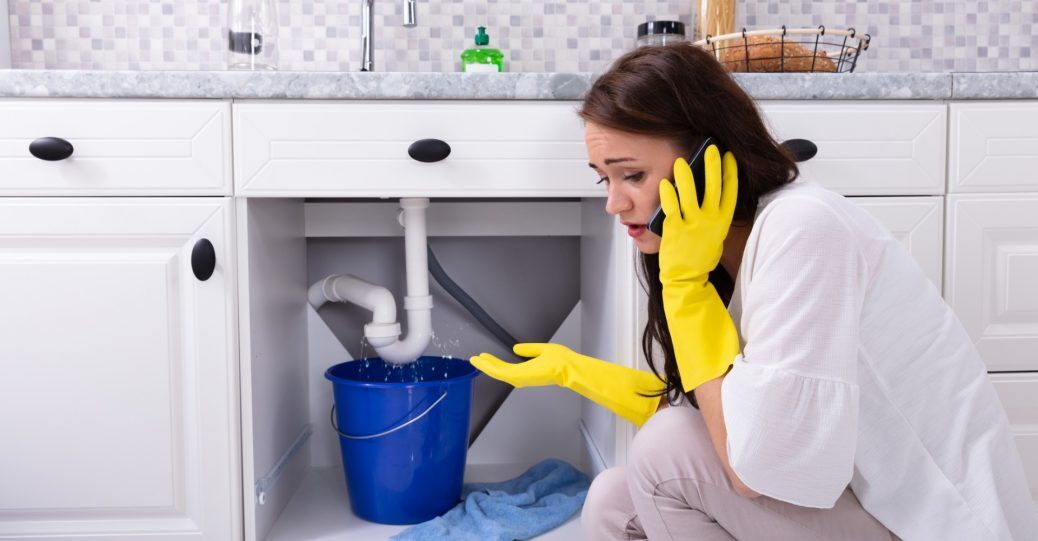In any residential or commercial space, dealing with blocked drains can be a common, yet wearisome ordeal. This mundane issue, if overlooked, can spiral into disastrous consequences such as severe home damage that necessitate costly repairs and mar the aesthetic integrity of the property. Blockages can arise due to a smorgasbord of causes like grease, solidified oil, hair strands and even roots from trees or plants in your yard. These causes may seem innocuous on a peripheral level but can trigger damaging cascades if not addressed in time. It is, therefore, essential to identify the early signs of a blocked drain and discern when it’s appropriate to call a professional plumber. This comprehensive article aims to shed light on these important aspects.
The Mechanics of Your Drainage System
The drainage system is a complex, interconnected network that forms the lifeblood of your home’s plumbing. Its primary function involves conveying waste and water seamlessly, allocating them both from your household to designated external disposal areas. This system includes various fixtures and pipes which, when functioning optimally, ensure hassle-free disposal of waste from your property.
However, on numerous occasions, this system encounters problems, chief among which are blockages. If a single piece of the extensive network buckles under the strain of, say, solidified grease or a build-up of hair, it can create ripple effects that throw your entire system out of whack. These problems, when neglected, can incite circumstances like flooding and escalate structural damage to the house, not to mention inflict a distressing impact on everyday household activities.
Grease Is More Than a Nuisance
One of the most prevalent contributors to blocked drains is grease. This seemingly harmless substance is notorious for clinging to the walls of pipes, gradually accumulating over time. As the grease builds up, the pathway within the pipes begins to shrink, causing water to struggle to pass through, and eventually leading to persistent clogging issues.
The signs indicative of a grease-blocked drain can be slow water drainage accompanied by an unpleasant odour permeating from the plumbing fixtures. To prevent this problem, conscientiously regulate what gets disposed of through your sinks. Avoid pouring leftover fat or oil from food preparation down the sink.
Hair: A Common and Troublesome Culprit of Drain Blockage
Another common substance causing blocked drains is hair, easily washed down during showers or baths. Hair strands, lone or tangled, can intertwine with other waste materials to form obstinate blockages. One standard feature of a hair-induced blockage is sluggish water drainage, most noticeably in showers or bathtubs.
To deter such obstructions from manifesting, regular maintenance of drain covers is crucial. A simple yet effective practice involves installing drain catchers which can also be routinely cleaned to prevent the buildup of hair in your drain pipes.
Roots: An Unexpected Cause of Blocked Drains
A less-known but equally destructive cause for blocked drains is the intrusion of roots from trees or plants. Roots, in their relentless search for water and nutrients, infiltrate any tiny fissures in your drain or pipes. As these roots perpetuate, they can form a mesh, choking your pipes and causing considerable, often irreversible, damage.
The presence of such a blockage is signified through frequent sewage backups and unanticipated gurgling noises from your toilet. Regular inspections of pipes and mindful planting, keeping trees at a safe distance from drain pipes, can help to mitigate the risk of this particular problem.
How to Know When It’s Time to Call a Plumber

Recognising the early signs of a blocked drain is vital. Tell-tale signs include slow draining water, persistent unpleasant smells, unusual noises, and fluctuations in toilet water levels. Ignoring these indications can exacerbate the problem, potentially leading to more severe issues such as pipe bursts or sewage backups. These aren’t just structural issues, but can pose significant health risks too.
When faced with persistent drainage issues, it’s vital to call in the professionals. They not only bring a skilled eye to diagnose the problem but also carry the right equipment to fix it. Renowned plumbing professionals incorporate technology in their diagnosis. For instance, plumbers use CCTV cameras to inspect drains and decipher the root of the problem, offering a distinct advantage over homeowners who might struggle to locate the issue. With their invaluable expertise, plumbers can implement effective, long-lasting solutions that the average homeowner might be helpless against.
Conclusion
Understanding the warning signs of a blocked drain, and taking timely remedial actions, can play a significant role in maintaining a healthy, functional home environment. Early intervention could minimise the damage caused, eliminating the likelihood of more severe problems occurring. A tangible advantage of timely action is it reduces the ensuing repair cost and the time that would otherwise be required to fix more severe issues.
A well-maintained, smooth-functioning drain system contributes significantly to the smooth functioning of the household, almost in an imperceptible, taken-for-granted manner. Therefore, it’s crucial to remain vigilant and proactive in caring for your drains, recognising when professional help is needed, and taking prompt action. Failing to do so risks the well-being of your home, your peace of mind, and potentially, your savings.






